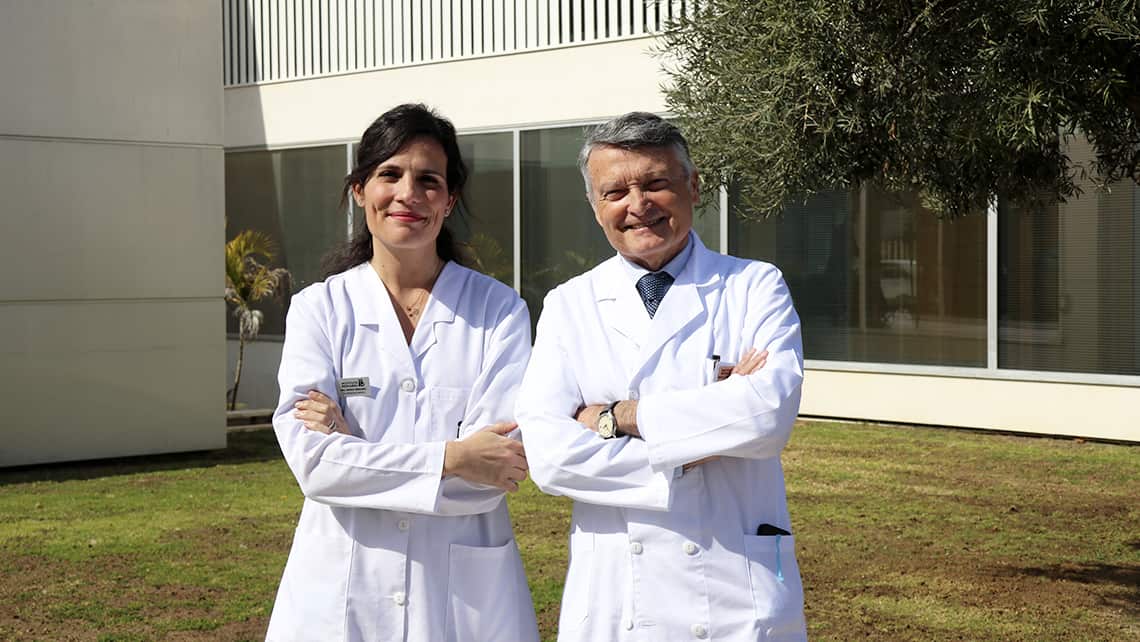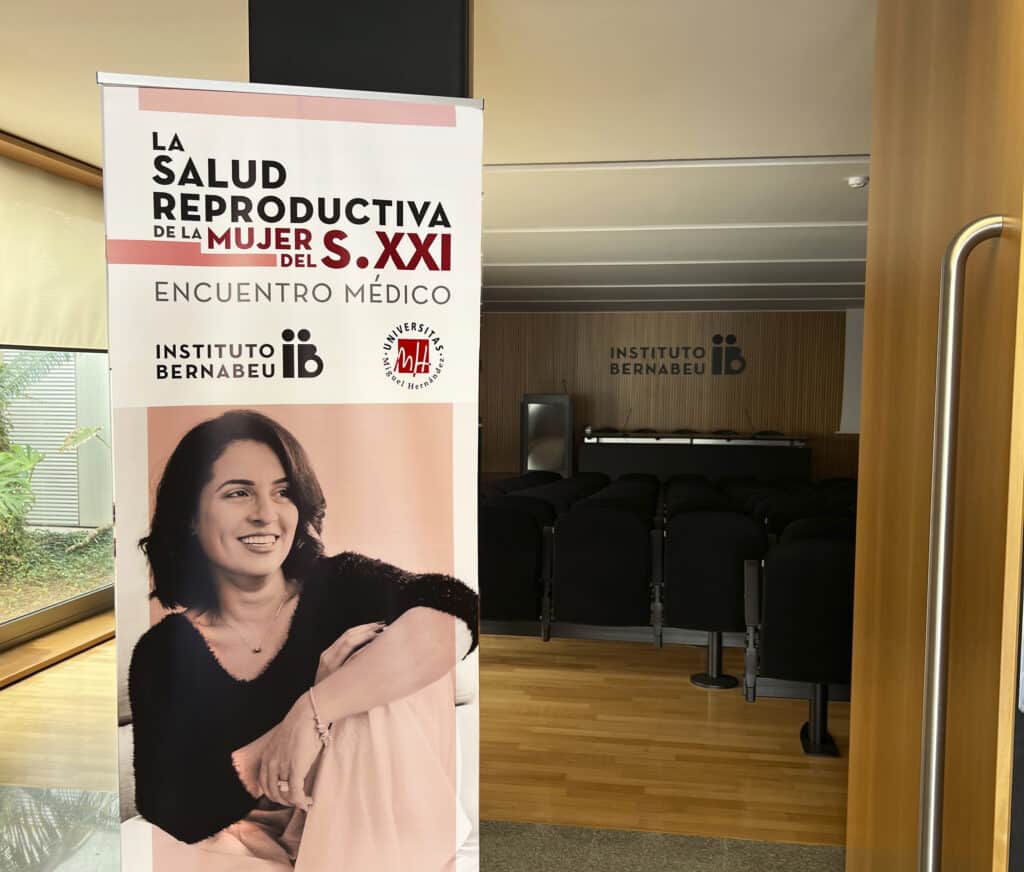Experts meet at Instituto Bernabeu to address the reproductive health of 21st century women
March, 13th 2023

The clinic analyses the implications of delayed childbearing on fertility, the innovative treatments already being applied and the reproductive medicine of the future.
The association Red Nacional de Infértiles will receive a special mention for its work.
Women’s reproductive health in the 21st century under debate. Delaying motherhood and its impact on ovarian reserve; the effect of endometriosis on women’s fertility or the role of scientific innovation and Artificial Intelligence in reproductive medicine, are some of the current issues that are addressed in the medical meeting open to gynaecologists, specialists from different disciplines related to women’s health, medical students, patients and the general public, which is held in the Auditorium of the Instituto Bernabeu Alicante clinic.
As part of the commemoration of Women’s Day, the clinic, through its University Chair of Community Medicine and Reproductive Health of the Miguel Hernández University (UMH), is organising this medical conference where renowned experts will share knowledge and experiences on “Reproductive Medicine and biological clock” and “Reproductive Medicine of the future”, in a meeting that will be broadcast live on Información TV.
Instituto Bernabeu’s special sensitivity to the knowledge progress, continuous research and scientific dissemination has motivated this update session, which will be inaugurated by the medical director of Instituto Bernabeu and director of the Chair, Dr Rafael Bernabeu.
Reproductive medicine and biological clock
Nowadays, women delay, for different reasons, their time to become mothers. This is a reality. The average age for Spanish women to have their first child today is around 32, whereas 40 years ago it was less than 26. Instituto Bernabeu scientific director Bernabeu Institute, Dr Juan Carlos Castillo, will talk about the importance of this fact and how the ovarian reserve inexorably decreases and hinders the chances of pregnancy.
In Spain, around two million women suffer from endometriosis, a chronic disease of unknown cause. Dr Belén Moliner, coordinator of Endometriosis and 4D Ultrasound at the clinic, and one of Europe’s leading experts in this disease, will be responsible for explaining its implications and the advances made in the field. Following this, the Hysteroscopy Unit director at Instituto Bernabeu, Dr Paolo Cirillo, will discuss in detail when oocyte preservation is advisable and in which cases this technique is indicated.
At the end of this section, the gynaecology section head at Hospital de San Juan, Dr Maribel Acién, and the president of the Valencian Society of Family Medicine, Dr María Ángeles Medina, will participate as moderators in the round table discussion.
Reproductive medicine for the future
Age is one of the main causes of low ovarian reserve, but not the only one. The director of the Low Ovarian Reserve Unit, Dr Ana Fuentes, will address the innovative treatments applied in cases diagnosed with low ovarian reserve and what protocols can be developed to optimise ovarian stimulation. The treatments individualisation in reproductive medicine and how to focus on the individual characteristics of each patient will be presented by Dr Belén Lledó, scientific director of IB Biotech.
Instituto Bernabeu is a pioneer in the application of systems based on Artificial Intelligence, which help to improve results and personalise treatments. The Group’s medical co-director, Dr Andrea Bernabeu, will be in charge of sharing with the attendees all the advances and new developments they are working on.
This block will include a round table discussion moderated by Dr María Concepción Carratalá, lecturer in the Department of Clinical Medicine at the UMH; and Dr Marcos Reillo, head of the Obstetrics and Gynaecology section at Hospital General Universitario de Elche.
The meeting included the presentation of a special mention to the patients’ association Red Nacional de Infértiles, for their commitment and the great social work they carry out.
The event was closed by the UMH vice-rector of Research, co-director of the Chair of Community Medicine and Reproductive Health, Dr Domingo Orozco.

